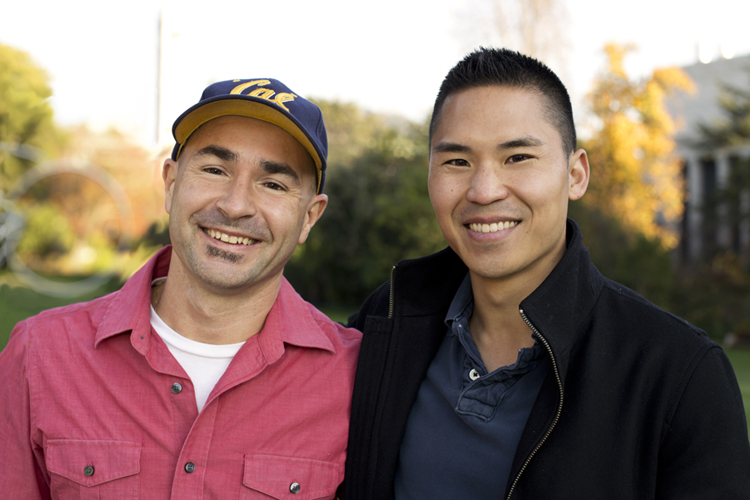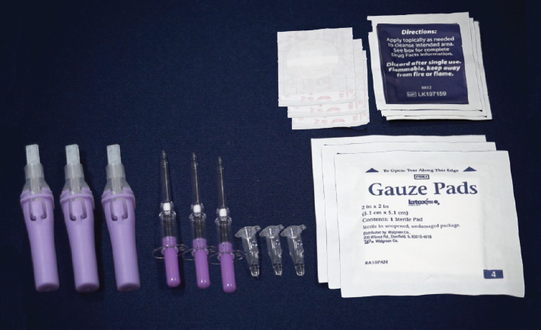Like colored hair or brittle bones, your DNA is prone to damage.
The integrity of your DNA is constantly under assault from the environment, industrial chemicals, ultraviolet light, ionizing radiation and other extraneous dangers. This resulting damage can lead to mutation and a variety of diseases, including cancer and neurodegenerative disorders.
Scientists are still exploring the negative impact of these physical breaks in DNA and the various lifestyle factors that will increase your likelihood of damage.
A Berkeley Calif.-based startup called Exogen Biotechnology wants to advance this effort and is building new tools to assess DNA damage. But Exogen’s small team of scientists don’t currently have access to a large enough sample of human DNA to make any definitive claims.
Their solution? Cofounders Sylvain Costes and Jonathan Tang have turned to crowdfunding website Indiegogo to raise funds and collect blood samples from the community. The career scientists explicitly refer to their campaign, which closes on March 10, as a “citizen science” project. Exogen raised $25,000 in its first three days and is now up to $40,000.
Exogen is hoping to amass about 5,000 DNA samples for the purposes of research. DNA damage can occur in many different ways, but the team will focus on double-strand breaks. DNA double-strand breaks occur when both strands in the double helix are severed.
“This initial Indiegogo campaign is intended to help Exogen collect enough samples to learn more about what elevated damaged DNA levels mean exactly,” Exogen cofounder Sylvain Costes wrote to me. “In return for their blood samples, participants in the campaign will receive their average number of DNA double-strand breaks.”
In an interview with VentureBeat, the founders stressed that DNA will not be sold for commercial purposes and that its data collection methods are secure, encrypted, and meet current HIPAA requirements.
Note that backers should not expect to receive insights about what it means to have a low or high level of damaged DNA. The founders admit that it’s an “informational test only” for now, but the founders believe their research will have broad implications for the biomedical field.
What’s different about Exogen?
Scientists developed the technology to measure DNA damage about a decade ago. But that procedure is lengthy and error-prone when it’s performed manually.
Exogen is focused on building new technology and advancing science. Its team has already developed a novel way of attaining reproducible results based on a tiny blood sample. This process was initially developed at the Lawrence Berkeley National Laboratory.
Exogen is also building a web application where its Indiegogo DNA donors can log details about their lifestyle. They hope to find a link between diet and levels of DNA damage. The team plans to explore age, medical, environmental, and lifestyle factors.
The founders told me they have a hunch about what the results will reveal. Before launching the Indiegogo campaign, Exogen conducted two pilot studies with data from about 100 people. From those tests, Exogen observed a correlation between high levels of DNA damage and age; they also noted that people who have suffered from cancer had a higher level of DNA damage compared to others in their age group.
In the next few years, Exogen plans to raise additional funding, which will be used to hire legal counsel, scientists, and engineers. Costes expects that the company will need to work closely with the Food and Drug Administration (FDA).
Exogen has raised just over $40,000 in funding so far. Backers who pay $99 can access a a baseline measurement of their DNA damage. They receive a kit in the mail to allow users to safely collect and send back three samples of blood. Those who fork over $999 can access an application to track and monitor their DNA over the course of a year when it’s re-analyzed in the lab.
Check out the video below to learn more about Exogen.
Related articles
VentureBeat's mission is to be a digital town square for technical decision-makers to gain knowledge about transformative enterprise technology and transact. Learn More






![Reblog this post [with Zemanta]](http://img.zemanta.com/reblog_e.png?x-id=29c35f6e-4272-453d-8c8b-384305d6ec3d)
